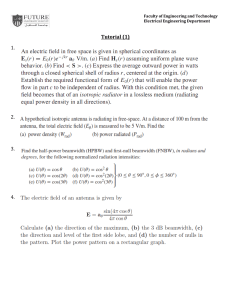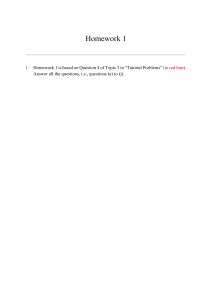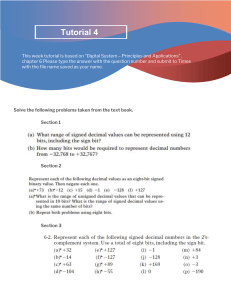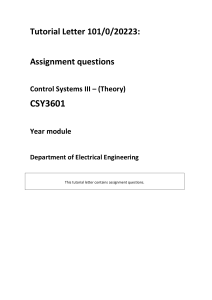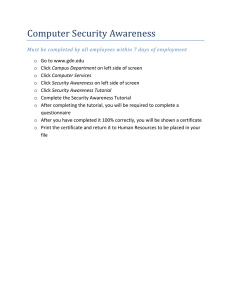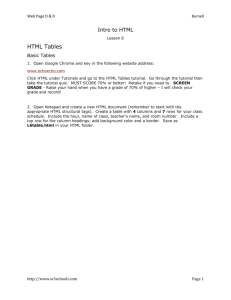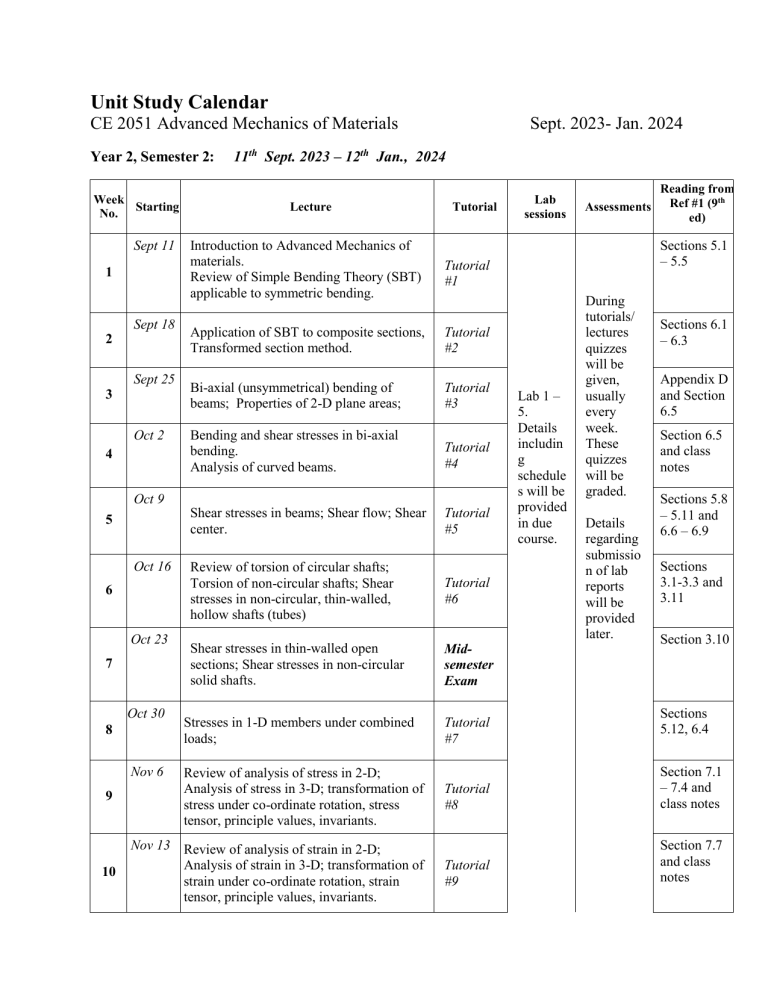
Unit Study Calendar CE 2051 Advanced Mechanics of Materials Year 2, Semester 2: Week Starting No. Sept 11 1 Sept 18 2 Sept 25 3 Oct 2 4 Sept. 2023- Jan. 2024 11th Sept. 2023 – 12th Jan., 2024 Lecture Tutorial Introduction to Advanced Mechanics of materials. Review of Simple Bending Theory (SBT) applicable to symmetric bending. Tutorial #1 Application of SBT to composite sections, Transformed section method. Tutorial #2 Bi-axial (unsymmetrical) bending of beams; Properties of 2-D plane areas; Tutorial #3 Bending and shear stresses in bi-axial bending. Analysis of curved beams. Tutorial #4 Shear stresses in beams; Shear flow; Shear center. Tutorial #5 Oct 9 5 Oct 16 6 Oct 23 7 Oct 30 8 Nov 6 Review of torsion of circular shafts; Torsion of non-circular shafts; Shear stresses in non-circular, thin-walled, hollow shafts (tubes) Tutorial #6 Shear stresses in thin-walled open sections; Shear stresses in non-circular solid shafts. Midsemester Exam Stresses in 1-D members under combined loads; Tutorial #7 9 Review of analysis of stress in 2-D; Analysis of stress in 3-D; transformation of stress under co-ordinate rotation, stress tensor, principle values, invariants. 10 Nov 13 Review of analysis of strain in 2-D; Analysis of strain in 3-D; transformation of strain under co-ordinate rotation, strain tensor, principle values, invariants. Lab sessions Reading from th Assessments Ref #1 (9 ed) Sections 5.1 – 5.5 Lab 1 – 5. Details includin g schedule s will be provided in due course. During tutorials/ lectures quizzes will be given, usually every week. These quizzes will be graded. Details regarding submissio n of lab reports will be provided later. Sections 6.1 – 6.3 Appendix D and Section 6.5 Section 6.5 and class notes Sections 5.8 – 5.11 and 6.6 – 6.9 Sections 3.1-3.3 and 3.11 Section 3.10 Sections 5.12, 6.4 Tutorial #8 Section 7.1 – 7.4 and class notes Tutorial #9 Section 7.7 and class notes 11 12 Nov 20 Review of Mohr’s circle for 2-D stresses and strains. Mohr’s circle construction for 3-D stresses and strains; Nov 27 Constitutive relations in 3-D for isotropic, linear elastic materials. Experimental measurement of strains and stresses; Strain gauges. Dec 4 13 Dec 11 14 15 Dec 18 1-D stress-strain behavior of materials, elastic and plastic deformations, yielding, yield criteria. Failure criteria of materials. Yield criteria of Tresca and von-Mises, corresponding yield curves in 2-D. Use of invariants in yield criteria. Revision Tutorial #10 Section 7.4, 7.7 and class notes Tutorial #11 Section 7.5 and class notes Tutorial #12 To be assigned To be assigned Revision Study week Assessment Scheme: Component Continuous Assessment Quizzes Lab work Mid-semester Exam Final Exam End-semester Exam Weight 10% 10% 20% 60% References: 1. “Mechanics of Materials” by Goodno and Gere, 9th edition, (or even any previous edition) (or older editions of the same textbook by Gere & Timoshenko). 2. Class notes will be provided for some topics. Notes: 1) All notices, announcements, tutorials etc. related to this module will be made available on the module page in the course-web. Students are expected to consult this module page regularly. 2) Each week there will be a 2-hour lecture and a 1-hour tutorial discussion session for the entire class. Each student will also have a 2-hour laboratory session per two weeks. 3) The whole class will be together for lectures and tutorials. For laboratory work the class will be sub-divided into groups. Refer the timetable and the course web for details. 4) Lecture notes/ presentation handouts will be made available on the course web for each week. Students should complete the reading assignments listed in the unit study calendar – preferable before the corresponding lecture. They are encouraged to raise any questions and/or seek clarifications - in the lecture or in the tutorial discussion classes - regarding the material covered in the class or listed for reading. 5) Tutorial problems for each week will be posted on the course web in advance and the students are expected to try them in preparation for the discussion classes. Any difficulties they have may be taken up in the discussion classes. 6) Several quizzes will be conducted in the lectures and/or tutorial discussion classes. A quiz may be a small problem or a set of multiple-choice/short answer type questions. Quizzes will be graded. The marks will contribute towards the continuous assessment (CA) component. 7) Laboratory sessions will be arranged separately for the different groups. Detailed schedules for lab sessions will be announced on the course web later. The laboratory assignments will earn marks towards continuous assessment. 8) There will be a 1-hour mid-semester examination in week number 7. This will be a conventional exam consisting of essay type questions, multiple choice questions, short answer questions, or a mixture of these types. 9) An end-semester exam will be conducted in the exam period during weeks number 16/17. This will be a 2-hour conventional exam. More details will be provided later in class. 10) The lecturers and teaching assistants will set aside weekly “office hours” which will be announced later in the class. Students are encouraged to meet them during these office hours to discuss any matters related to the module. Meetings by appointment, outside the office hours, also may be arranged on request. Dr. Nihal Somaratna Co-ordinator CE2051 Aug. 25, 2023 e-mail: nihal.s@sliit.lk
